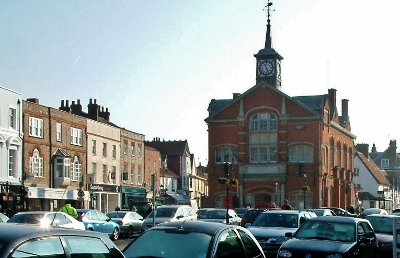Government’s new planning laws ‘put pressure on Thame’
RECENT changes in National Planning Guidance, are undermining the Thame Neighbourhood Plan.
This was a view expressed at a recent meeting between Thame Town Council and various Residents Associations, to review the progress of the Thame Neighbourhood Plan.
The changes have meant that office buildings can be converted for residential use, without formal planning consent, as was the case of the 46 additional dwellings to the 775 agreed in the TNP, at the old Angus Fire Armour building, recently given planning consent to be turned into apartments.
Discussing so-called ‘Windfall sites’, the council reported in its draft Monitoring and Delivery report that it expects more planning changes from the Government this year, including allowing for shops to be converted into residential without planning permission. However, it is expected that this will exclude Conservation Areas, of which most of Thame town centre is, so should have limited effect.
The Government has advised that permitted development will also be extended to allow agricultural buildings up to 450 sqm to be changed, to provide up to three new homes. This may therefore result in further development in the Thame Parish area which includes a number of farms.
The draft report stated that there continues to be a number of ‘windfall’ sites coming forward for planning permission, that the council stated “will be considered and assessed” in the context of the TNP policies and the adopted Local Plan. (Thame Town Council has asked the Minister, Nick Boles whether ‘windfall sites’, that is those not planned for, but which come forward for planning permission during the period eg ‘in-fill’ on private land, may be counted in Thame’s allocation. But he had to date not responded.)
Bob Austin, who represents Towersey Road Residents Association, said that he felt these windfalls were: “….substantially altering the Neighbourhood Plan in regard to infrastructure. It is entirely feasible that the number of dwellings required of Thame could increase by a third and the subsequent increase in the population all adding to the pressures on the town.
“We’re being dumped on!” he added.
In response, Jake Collinge, the town council’s Planning Advisor, said: “No one could argue with what you have said.” He then went on to explain how CIL (Community Infrastructure Levy) payments, soon to replace developer contributions via Section 106 agreements, may be used to fund new community facilities through community loans, or used to provide for things like extra parking. At present, developer contributions do not materialise until after detailed planning permission has been granted.


